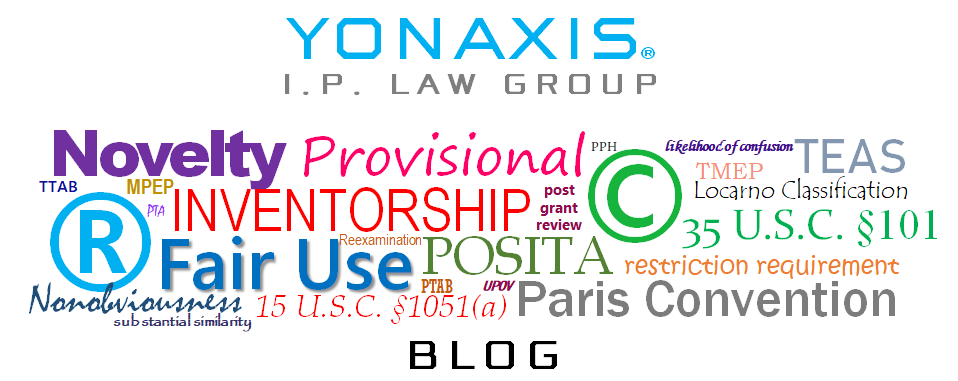On February 24, 2022, the Court of Appeals for the Federal Circuit held in In re Elster,[1] that Section 2(c) of the Lanham Act (15 U.S.C. §1052(c)) unconstitutionally restricts free speech. In doing so, the Fed Circuit cleared the way for trademark applicants to utilize their marks used in commerce as a platform to comment or criticize consistent with First Amendment freedom of speech principles.
Section 2(c) of the Lanham Act reads:
No trademark . . . shall be refused registration on the principal register on account of its nature unless it –
(c) Consists of or comprises a name, portrait, or signature identifying a particular living individual except by his written consent, or the name, signature or portrait of a deceased President of the United States during the life of his widow, if any, except by the written consent of the widow.
In 2018, applicant Steven Elster filed a trademark application for TRUMP TOO SMALL in International Class 25, for shirts. The phrase is in reference to a debate exchange between Donald Trump and Senator Marco Rubio at a Republican presidential primary debate during the 2016 presidential campaign. The applicant’s purpose was the illustrate “some features of President Trump and his policies are diminutive.”
The examining attorney refused registration, citing Section 2(c), specifically stating there was “no statutory or case law carve-out for political commentary.” The examining attorney further rejected a First Amendment argument made by applicant. The Trademark Trial and Appeal Board (TTAB) concluded that even if 2(c) required greater scrutiny in restricting applicant’s criticial speech regarding then-President Trump’s policies, the restrictions were narrowly tailored to advance the compelling government interest in both protecting Trump’s privacy rights as well as protecting consumers against deceptive sources of indicia.
The Fed Circuit panel was composed of Circuit Judges Dyk, Taranto and Chen, with Judge Dyk writing for a unanimous court. Judge Dyk raised two recently decided U.S. Supreme Court decisions involving Section 2(a) and First Amendment restrictions: Matal v. Tam,[2] which struck down the disparagement clause of Section 2(a),[3] and Iancu v. Brunetti,[4] which struck down the scandalousness clause of Section 2(a).[5] Judge Dyk noted that both opinions elucidated that “the government may not discriminate against speech based on the ideas or opinions it conveys.”
the government may not discriminate against speech based on ideas or opinions it conveys.
In re Elster, slip op. at 4.
Although the Tam/Brunetti opinions discussed First Amendment principles vis-à-vis a different paragraph of Section 2, Judge Dyk concluded that Section 2(c) involved content-based discrimination against speech that could not be justified by either compelling or substantial government interests.
First, the USPTO argued that the Lanham Act bars to registration are comparable to speech in a limited public forum. While Judge Dyk agreed a limited public forum did not need to be a physical location, any Lanham Act bars to registration effectively “chilled speech anywhere from the Internet to the grocery store.”[6] He further noted that expressive speech does not lose its First Amendment protections merely because it is printed on a T-shirt, citing a long list of cases.[7]
Judge Dyk noted that the right to criticize public persons is a prerogative of U.S. citizenship. The government interest of protecting Trump’s privacy is lessened because the U.S. Supreme Court has held that “one of the costs associated with participation in public affairs is an attendant loss of privacy.” [8] Further, the government does not have a legitimate interest in protecting President Trump’s privacy from injury caused by applicant’s political criticism of Trump’s policies he pursued while acting as U.S. President. As to the government interest in preventing copying or misappropriation of a current registered mark, there is no evidence in the record that President Trump’s name was misappropriated for commercial gain or dilution of the commercial value of his name.
One of the costs associated with participation in public affairs is an attendant loss of privacy.
Bartnicki v. Vopper, 532 U.S. 514 (2001).
The Elster case represents a chipping away of the Section 2 bars to trademark registration, with Section 2(a) now limited to geographical indications, and Section 2(c) limited to non-critical or commentary-related speech mostly directed to private figures. Already, since the Elster case was decided, several trademark applications with First Amendment considerations have been filed, including F . . . PUTIN, filed February 28, 2022, in International Class 33, for vodka; PUTIN-FREE & design, on March 2, 2022, in International Class 25, for clothing; and PUTIN THE BITCH, filed March 29, 2022, in International Class 25, for T-shirts.
For more information on the First Amendment and trademark law, please contact Yonaxis I.P. Law Group.
[1] ___F.4th___ (Fed. Cir. Feb. 24, 2022), rev’g In re Elster, App. No. 87749230 (T.T.A.B. Jul. 2, 2020).
[2] 582 U.S.___, 137 S. Ct. 1744 (2017).
[3] No trademark . . . shall be refused registration on the principal register . . . unless it – (a) Consists of . . . matter which may disparage or falsely suggest a connection with persons, living or dead, institutions, beliefs, or national symbols, or bring them into contempt, or disrepute.
[4] 588 U.S.___, 139 S. Ct. 2294 (2019).
[5] No trademark . . . shall be refused registration on the principal register . . . unless it – (a) Consists of or comprises immoral, deceptive, or scandalous matter.
[6] See Brunetti, 877 F.3d 1330, 1348 (Fed. Cir. 2017).
[7] See Cohen v. California, 403 U.S. 15, 18 (1971) (holding a jacket with the words “Fuck the Draft” is protected speech); Comedy III Prods., Inc. v. Gary Saderup, Inc., 21 P.3d 797, 804 (Cal. 2001) (holding that artwork on T-shirts does not result in reduced First Amendment protection); Ayres v. City of Chicago, 125 F.3d 1010, 1014 (7th Cir. 1997) (“there is no question that the T-shirts are a medium of expression prima facie protected by the free speech clause of the First Amendment”).
[8] See Bartnicki v. Vopper, 532 U.S. 514, 534 (2001).

